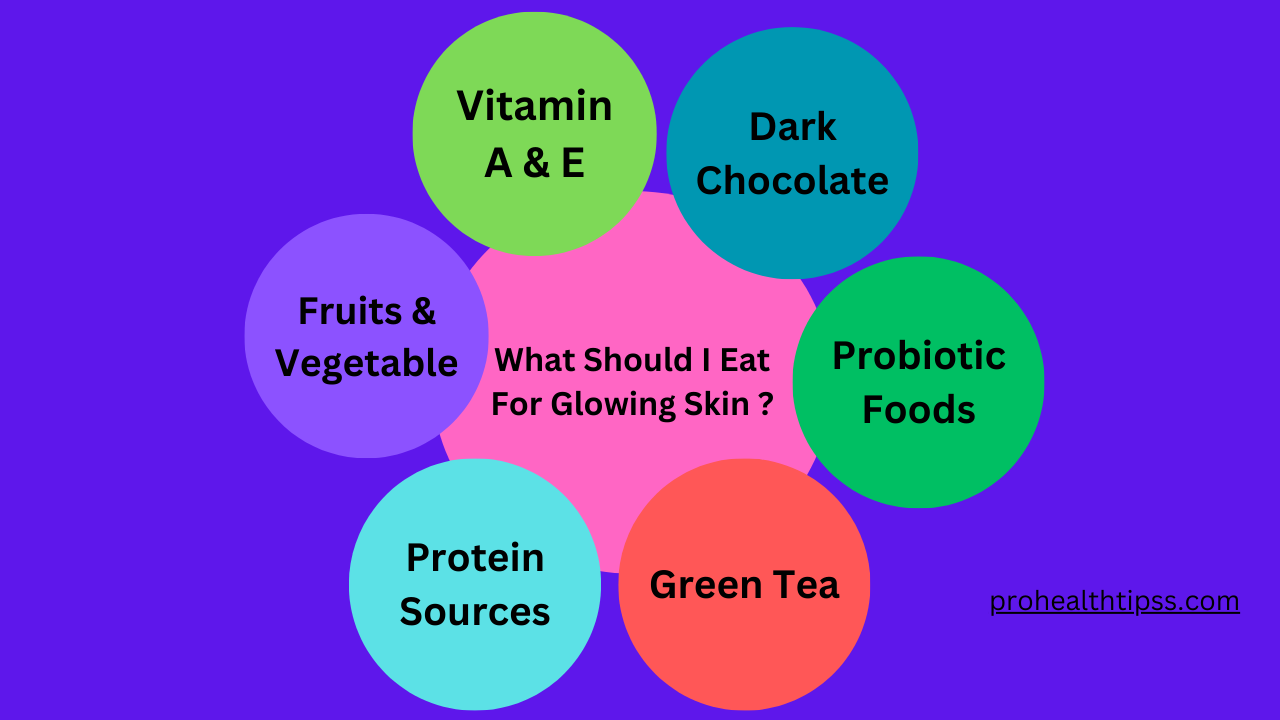Diet Plan for Glowing Skin and Healthy Body
A balanced and nutritious diet is crucial not only for maintaining a healthy body but also for fostering a luminous and healthy complexion. By incorporating a diverse range of nutrient-rich foods, individuals can ensure they receive the essential vitamins and minerals vital for overall well-being and skin vitality. It is recommended to include a colorful assortment of fruits and vegetables in daily meals, as these foods are rich in antioxidants that combat free radicals and support skin health. Omega-3 fatty acids, found in sources like fatty fish, flaxseeds, and walnuts, play a role in preserving skin elasticity and hydration. Adequate hydration is also essential; thus, drinking plenty of water aids in flushing out toxins and maintaining well-hydrated skin.
Importance of Healthy Body and Glowing Skin
The importance of maintaining a healthy body and achieving glowing skin extends beyond mere aesthetics, influencing overall well-being and confidence. A healthy body is the foundation for a robust immune system, enhanced energy levels, and improved mental health. When it comes to glowing skin, it not only signifies external beauty but also reflects internal health. A well-nourished body, supported by a balanced diet and hydration, contributes to radiant and youthful skin. Healthy lifestyle choices, including regular exercise and sufficient sleep, further enhance skin health by promoting circulation and cell regeneration. Additionally, glowing skin can boost self-esteem and confidence, fostering a positive mindset.
Principal of Diet Plan for Glowing Skin and Healthy Body
- Variety of Nutrient-Rich Foods:
Creating a well-balanced diet plan that promotes a healthy body and glowing skin involves incorporating a variety of nutrient-rich foods. A diverse range of fruits and vegetables provides essential vitamins, minerals, and antioxidants that support overall well-being.Foods rich in omega-3 fatty acids, such as fatty fish, flaxseeds, and walnuts, contribute to skin health by maintaining its elasticity and hydration. Including lean proteins like poultry, beans, and tofu aids in muscle repair and promotes a radiant complexion. Whole grains like quinoa and brown rice offer complex carbohydrates for sustained energy, while dairy or dairy alternatives supply calcium for bone health. Hydration is crucial, and consuming ample water and herbal teas helps flush out toxins, keeping the skin hydrated and radiant.
- Antioxidant-Rich Choices:
In crafting a diet plan for a healthy body and radiant skin, prioritizing antioxidant-rich choices is paramount. Antioxidants play a crucial role in neutralizing free radicals, which are unstable molecules that can cause cellular damage and contribute to aging and various health issues. Including a variety of colorful fruits and vegetables such as berries, citrus fruits, spinach, and bell peppers can provide a spectrum of antioxidants like vitamin C, beta-carotene, and flavonoids. Additionally, incorporating nuts, seeds, and green tea into the diet can contribute further to antioxidant intake. A balanced and diverse diet rich in antioxidants is not only a delicious way to nourish the body but also a fundamental strategy for achieving a healthy and vibrant complexion.
- Omega-3 Fatty Acids:
Incorporating omega-3 fatty acids into your diet is a smart choice for promoting both a healthy body and glowing skin. Omega-3s are essential fatty acids that play a crucial role in various bodily functions, including supporting cardiovascular health, reducing inflammation, and improving cognitive function. Not only do these fatty acids contribute to overall well-being, but they also exhibit significant benefits for skin health. Omega-3s help maintain skin elasticity, hydration, and a youthful appearance by supporting the skin’s natural barrier function. Sources rich in omega-3 fatty acids include fatty fish like salmon, chia seeds, flaxseeds, and walnuts. Including these nutrient-dense foods in your diet can contribute to a holistic approach to wellness, ensuring both internal vitality and a radiant complexion.
- Hydration:
Proper hydration is a fundamental aspect of any effective diet plan aimed at achieving a healthy body and radiant skin. Water plays a crucial role in supporting various bodily functions, including digestion, nutrient absorption, and the elimination of toxins. Incorporating an adequate amount of water into your daily routine helps maintain optimal organ function, aids in weight management, and promotes overall well-being. Furthermore, staying well-hydrated contributes to skin elasticity and hydration, leading to a glowing complexion. In addition to water, incorporating hydrating foods such as fruits and vegetables into your diet can further enhance your skin’s radiance.
- Collagen-Boosting Foods:
A well-rounded diet plays a pivotal role in maintaining a healthy body and promoting radiant skin. Collagen, a structural protein crucial for skin elasticity and overall connective tissue health, can be naturally enhanced through the incorporation of specific foods into one’s diet. Rich sources of collagen-boosting nutrients include fish, such as salmon and tuna, which provide essential amino acids and omega-3 fatty acids that support collagen synthesis. Additionally, vegetables like bell peppers and tomatoes, along with fruits such as citrus and berries, contribute vitamin C—an essential cofactor for collagen production. Bone broth, containing collagen and amino acids, is another excellent addition to a collagen-centric diet.
- Limit Processed Foods and Sugars:
A well-balanced diet plays a pivotal role in promoting a healthy body and radiant skin. One key aspect of a successful diet plan is the conscious limitation of processed foods and sugars. Highly processed foods often lack essential nutrients and can contribute to inflammation, negatively impacting overall health and skin appearance. Excessive sugar consumption is known to accelerate aging by promoting the formation of advanced glycation end products (AGEs), which can compromise collagen and elastin, vital components for skin elasticity. By prioritizing whole, nutrient-dense foods such as fruits, vegetables, lean proteins, and whole grains, individuals can support their bodies with the necessary vitamins and antioxidants for optimal health and achieve a natural, glowing complexion.
- Skin-Friendly Nutrients:
Achieving a healthy body and glowing skin requires more than just external skincare routines; it necessitates a well-rounded approach that includes skin-friendly nutrients in your diet plan. Incorporating a variety of vitamins and minerals into your meals can contribute to skin health from the inside out. Antioxidant-rich foods like berries, leafy greens, and citrus fruits help combat free radicals, reducing oxidative stress on the skin. Essential fatty acids found in sources such as salmon and flaxseeds support the skin’s lipid barrier, promoting hydration and elasticity. Vitamins A, C, and E play crucial roles in collagen production and skin regeneration. Including colorful vegetables, nuts, and seeds can provide these vital nutrients.
- Consistency and Balance:
Achieving a healthy body and radiant skin involves more than just topical treatments; it begins with a well-rounded and consistent diet plan. Consistency and balance are key pillars in nurturing both internal and external well-being. A diet rich in fruits, vegetables, lean proteins, and whole grains provides essential nutrients that promote overall health. Adequate hydration is equally vital, contributing to skin elasticity and a youthful complexion. Striking a balance between macronutrients, vitamins, and minerals ensures optimal functioning of bodily systems, reflecting positively on skin health. Embracing a holistic approach that combines nutritious food choices with hydration forms the cornerstone of a sustainable diet plan, fostering a healthy body and achieving that coveted glowing skin.
What Should I Eat For Glowing Skin?
To promote glowing skin, it’s important to focus on a balanced and nutrient-rich diet. Here are specific foods you can include in your diet to support skin health and achieve a radiant complexion:
- Fruits and Vegetables:
- Berries (blueberries, strawberries, raspberries) for antioxidants
- Citrus fruits (oranges, lemons, grapefruits) for vitamin C
- Leafy greens (spinach, kale) for vitamins and minerals
- Omega-3 Fatty Acids:
- Fatty fish (salmon, mackerel, sardines)
- Flaxseeds and chia seeds
- Walnuts
- Vitamins A and E:
- Sweet potatoes, carrots, and pumpkin for vitamin A
- Almonds, sunflower seeds, and spinach for vitamin E
- Protein Sources:
- Lean meats (chicken, turkey)
- Fish
- Plant-based sources like tofu, lentils, and beans

- Healthy Fats:
- Avocados
- Olive oil
- Nuts and seeds
- Whole Grains:
- Brown rice
- Quinoa
- Oats
- Green Tea:
- Contains antioxidants that can benefit the skin
- Water:
- Stay well-hydrated by drinking plenty of water throughout the day.
- Probiotic Foods:
- Yogurt with live cultures
- Kefir
- Fermented foods like sauerkraut and kimchi
- Dark Chocolate:
- In moderation, dark chocolate with at least 70% cocoa content contains antioxidants that may benefit the skin.
Remember, consistency is key. Incorporating a variety of these foods into your diet over time can contribute to healthier and more radiant skin. Additionally, factors like adequate sleep, regular exercise, and stress management also play crucial roles in maintaining skin health.
Read More Black Coffee Benefits and Side Effects Click Here
PROHEALTHTIPSS Suggestion
To achieve a healthy body and glowing skin, focus on a balanced diet rich in fruits, vegetables, and antioxidants. Include foods high in omega-3 fatty acids like fatty fish, flaxseeds, and walnuts, and prioritize sources of vitamins A and E, found in sweet potatoes, leafy greens, and almonds. Ensure an adequate intake of lean proteins from sources like chicken, fish, and plant-based options such as tofu and legumes. Incorporate healthy fats from avocados and olive oil, and choose whole grains like brown rice and quinoa. Stay hydrated with plenty of water and consider including probiotic-rich foods like yogurt and fermented items.
Conclusion
Adopting a well-rounded diet plan is pivotal for fostering a healthy body and achieving glowing skin. Emphasizing a variety of nutrient-rich foods such as fruits, vegetables, lean proteins, omega-3 fatty acids, and whole grains provides the essential vitamins and minerals necessary for skin health. Adequate hydration, limited intake of processed foods and sugars, and consideration of lifestyle factors like regular exercise and stress management further contribute to overall well-being. Remember that individual responses may vary, so it’s advisable to consult with healthcare professionals or dietitians for personalized guidance. By maintaining a nutritious and mindful approach to eating, one can support both internal health and external radiance.




